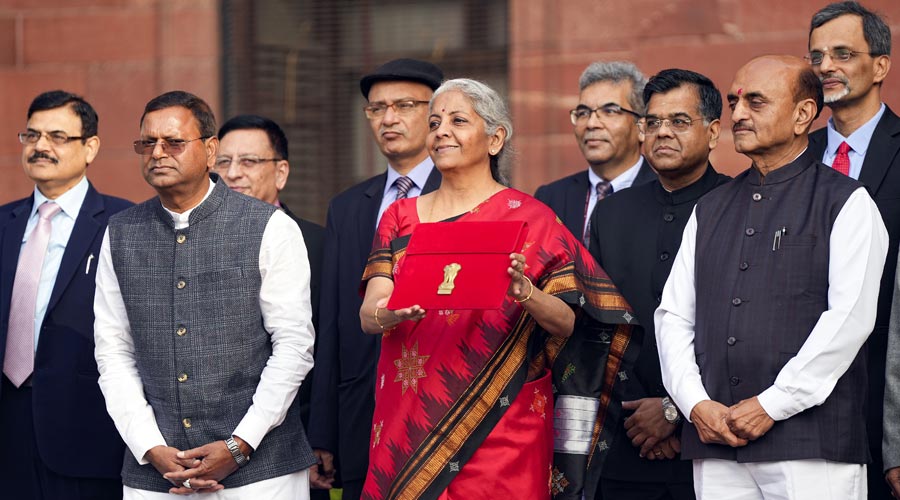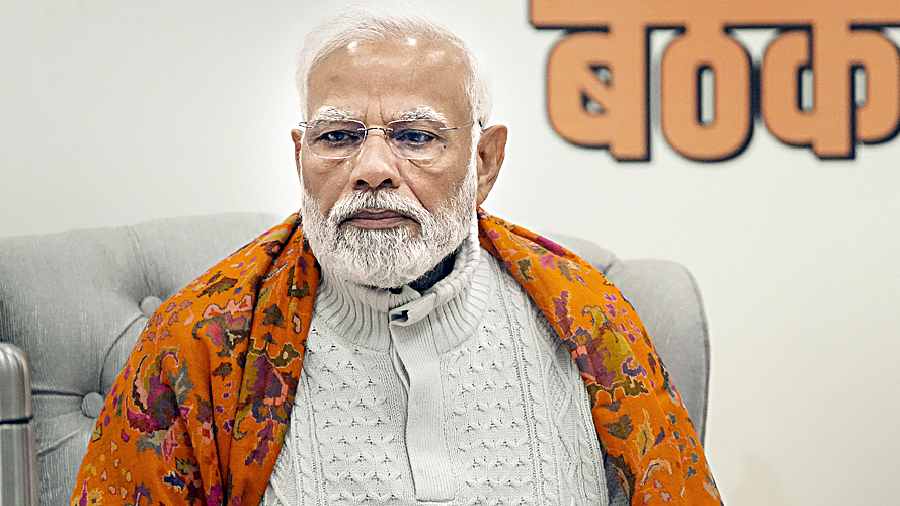The Centre has proposed a 3.6 per cent increase in its annual budget for health in 2023-24, with funds rising for government-funded hospital care for eligible households but stagnating for core activities such as strengthening of public health systems and disease control.
The 2023-24 Union budget has earmarked an outlay of Rs 86,175 crore for the health and family welfare ministry, an increase of about Rs 3,000 crore over last year’s outlay that some experts say could make it hard for programmes to beat even inflation.
The proposed outlay for health has evoked disappointment among sections of experts, one of whom said the budget shows a “disturbing stagnation” in the funds that will be available to several key health programmes clubbed under a budget head titled “flexible pool”.
“The overall 3.6 per cent increase is stagnation or could even be a decline in real terms, depending on inflation,” said T. Sundararaman, a community medicine specialist and former executive director of the National Health Systems Resource Centre, New Delhi, a health ministry institution.
The outlay for the flexible pool has declined to Rs 22,094 crore for 2023-24 from the initial outlay of Rs 22,316 crore that was revised downward to Rs 21,831 crore for 2022-23. The flexible pool provides funds to support reproductive and child health initiatives, strengthening of public health systems, efforts to control diseases such as dengue, malaria and tuberculosis, among others, and address healthcare needs of the urban population with a focus on urban poor and vulnerable sections of society.
“It is discouraging to see funds stagnate for such activities,” Sundararaman said.
The outlay for the Pradhan Mantri Jan Aarogya Yojana (PMJAY), the public-funded health insurance programme that provides up to Rs 5 lakh per year to millions of poor and vulnerable households across the country, has increased to Rs 7,200 crore for 2023-24 from Rs 6,412 crore in 2022-23.
The outlay for the Central Government Health Scheme (CGHS) that provides outpatient and hospital treatment for government employees will increase to Rs 2,220 crore in 2023-24 from Rs 1,850 crore in the previous year. The outlay for the medical treatment of CGHS pensioners will increase to Rs 3,845 crore, or about Rs 1,200 crore higher than in 2022-23.
“From the overall Rs 3,000 crore increase, Rs 2,200 crore will go into the PMJAY and the CGHS schemes which channel public funds into private hospitals,” said Sundararaman, who is among experts who have argued that the government should prioritise strengthening public health facilities.
Finance minister Nirmala Sitharaman, in her budget speech in Parliament on Wednesday, announced a plan to set up 157 new nursing colleges to be collocated with the 157 medical colleges established since 2014.
The plan for nursing colleges is a "welcome move", said Poonam Muttreja, executive director of the Population Foundation of India, a non-government organisation engaged in population and health. "However, rural development and an overall focus on health were low on priority in the budget, with greater focus on defence and infrastructure investments."
Ishwar Gilada, an infectious disease specialist in Mumbai and secretary-general of the Organised Medicine Academic Guild, an association of senior doctors, described the outlay for the health budget as “utterly disappointing”.
“It is unfortunate, we haven’t learnt lessons from the pandemic… we must invest heavily in health if we really want to enjoy the fruits of India’s continuous upward strides,” Gilada said in a statement from OMAG. “We must remember that only a healthy nation can be a wealthy nation.”
Sitharaman also announced a mission to eliminate an inherited disorder called sickle cell anaemia by 2047 through a screening programme that will cover 70 million people up to the age of 40 years in affected tribal areas and provide counselling to those who carry disorder-linked genes.












